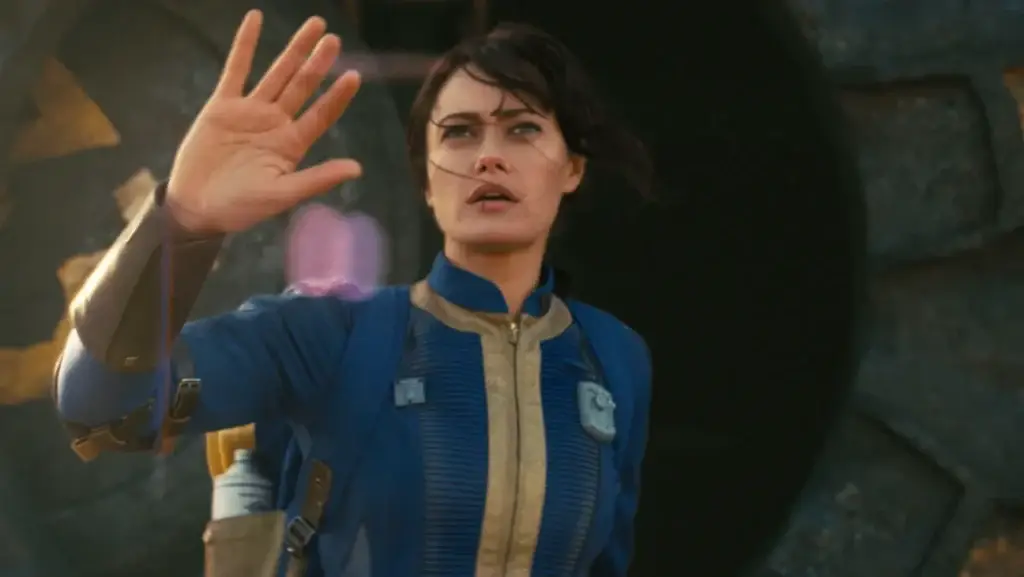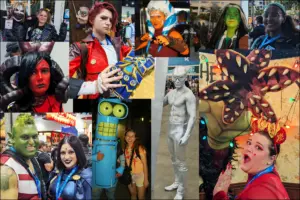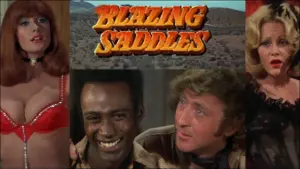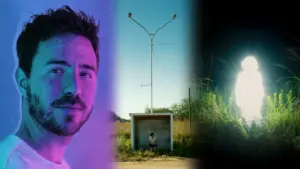Way back in 2008, I got a copy of Fallout 3 as a present. At that time, end-of-the-world content was mostly shlocky zombie fare, thanks to the success of Resident Evil and the 28 Days/Weeks Later franchise. I enjoyed Fallout’s satirical, retro-sci-fi take on the apocalypse/zombie genre, but the game demanded too much of my time, so I set it aside.
Flash forward to 2024; apocalypse stories are plentiful and profoundly better. The Last of Us, Station Eleven, and Silo all raised the bar on the genre with creative world-building and finely crafted characters. Moreover, since the real world is filled with yet another “unprecedented event,” it is no surprise that everybody is hungry for end-of-the-world content.
Better late than never, here comes Amazon studios trotting up to the wasteland with Fallout. I downloaded this eight-episode series onto my iPad ready to relive that goofy, retro-sci-fi world of stimpaks and Pip-Boys. I ended up dedicating about the same amount of time to Fallout the series as I did Fallout the game. Surprisingly, I liked the series more.
For a satirical apocalypse tale, Fallout (the series) is remarkably textured. It has a hugely satisfying contrast between cheerfully absurd American exceptionalism, RoboCopian violence, splatterific gore, and groovy space-age tech. Every moment of Fallout is a collision between adorable, deplorable, and goreable.
First there is the stellar production design, which easily rivals Last of Us and Silo. It is a healthy mix of practical and CGI effects that delivers a genuine end-of-the-world vibe. The sets are ultra detailed, filled with ample easter eggs for the Fallout fan. This production value is only augmented with the oddball retro-fifties look of pre-war Fallout.
Next is the tangled story that jumps from “modern” USA, with a dorky McCarthy-era charm to hundreds of years later after a nuclear holocaust with giant cockroaches and regenerative fingers. We are pulled along through a deliciously absurd tale of capitalism run amok, nuclear war, deceptive overlords, mutant cults, immortal moralizing ghouls, severed MacGuffin heads, wisecracking dismembering robots, and casual requests to make a cock explode.
Okey dokey, then.
If this sounds completely insane, it is. It also makes perfect sense while you watch it, which is why Fallout is such a gem. Fallout is an outrageous blend of tropes, memes, visuals, and narratives. Fallout throws everything from patriotic jingoism to splattered brains on the wall — and it all sticks! The story is unique to the Fallout universe, which was a wise decision on the showrunner’s part. It allows the series to fully consume the Fallout mythology, without entangling itself in the complex canon of the video games.
Installed in the center of Fallout is its best powerup: the weapons-grade charm of vault dweller and reluctant wasteland explorer Lucy (Ella Purnell). Purnell steals every second of Fallout. Her wide-eyed naivete contrasted with the shockingly amoral gore of the wasteland is pitch-perfect in every possible way. Purnell is a joy to watch. Her earnestness and sweetness dramatically increase Fallout‘s heart-and-soul levels. Since none of the video games have anything like her character, Purnell was an inspired casting choice.
Flanking Purnell are equally stand-out performances from Walton Goggins and Aaron Moten. Goggins is an underrated character actor who consistently gives his performances more than they deserve. He absolutely nailed the sleazy evangelical preacher role in The Righteous Gemstones. For Fallout, he transforms from aw-shucks cowboy actor to immortal (and immoral) wasteland pragmatist Ghoul. Moten plays against type as a shy, naive soldier who is bullied and beaten, but does not pass up an opportunity to get what he wants. Moten expertly combines a boyish charm with a steely eyed opportunist, in an understated role that blends nicely with Purnell’s innocence and Goggins’ ruthlessness.
Showrunners Geneva Robertson-Dworet and Graham Wagner have built a show that has a similar vibe to The Lego Movie. They transcribed the experience of playing a game into an effective narrative with memorable characters. Among the many great accomplishments of Fallout is the fact that there is no consistent antagonist. Each episode feels like a level in a video game. You go through the story, collect the powerups, learn the secrets, unlock the door, and fight the boss. In the next episode, you are reset to a new level, with a new boss to fight.
Fallout has plenty of fun taking swipes at American exceptionalism along the way. There are more than a few overt, snarky references to “making America great again” and destroying the scourge of communism. The show never hits you over the head with its social message, other than to say that “war never changes.” Which is a line directly from the video games.
Fallout reminds me of a lot of RoboCop (the 1987 original, not the 2014 turd), which is one of my favorite movies. Both have zany, absurd energy that expertly contrasts gore and violence with humor. As far as its contemporaries, Fallout is not as serious as Silo, or as emotional as The Last of Us, or as kind-hearted as Station Eleven. Whatever, I’d buy Fallout for a dollar. It is more fun than a barrel of ghouls.











